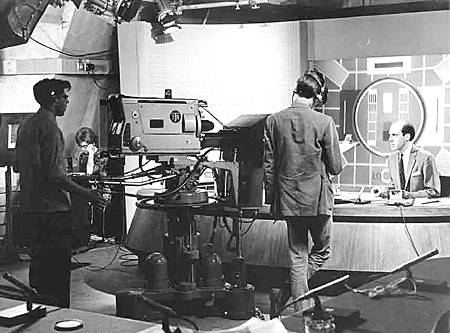
Julian Assange and WikiLeaks have tried to disrupt the official American version of reality so perhaps it’s a kind of poetic justice for a Hollywood studio to tell the story of WikiLeaks itself. The whistleblowers’ website told the public things that those in power would have preferred to keep under wraps. But now they find they have become the story, literally. A documentary and, later this year, a feature movie, have added new versions to the many narratives swirling around Assange and WikiLeaks.
[This article was first published in The Conversation – a topical forum where academe meets journalism]
It’s a very 21st century media phenomenon. In a world of information overload, cyber surveillance and digital wars, it’s no surprise that the lines between truth and fiction have become even more complex and confused.
This is not entirely new. When we think about the Watergate scandal, in our minds we are probably seeing All The Presidents Men. In reality the work of Bernstein and Woodward helped bring down a corrupt President. But it was Redford and Hoffman in the Hollywood version that made investigative journalism look cool and exciting. Arguably, the reason that the Washington Post story is now a popular benchmark for great political reporting is as much thanks to the drama of the movie as for the impact on US political history. Can Benedict Cumberbatch do the same for Assange?
Assange Furious
WikiLeaks and Assange are already outraged by what they’ve seen of the movie and have published detailed critiques. They are furious with any version of their lives and work that does not slavishly support everything they do. WikiLeaks might be interested in opening up secrets but they are not really up for a debate about themselves. Some people would be flattered to be subject to a movie which appears to be pretty sympathetic to their cause. But Assange is not that kind of ego.
One of the paradoxes about WikiLeaks is that they are data journalists who deal in facts and yet they have also created a personality cult. Of course they have a strong political ‘bias’. They are increasingly critical of America, for example, while saying little about human rights abuses elsewhere in the world. But while they put out a lot of rhetorical and opinionated commentary, their core trade is in actuality. They reveal what those in power do in the their own words. That’s the beauty of leaking. Yet at the same time the idea of WikiLeaks has become synonymous with Assange himself.
This gives them a great strength. He is a clever man and a remarkable character. The blonde hair and the messianic aura have created an iconic image tailor-made for political t-shirts and TV. Yet, it is also a weakness. If you don’t like the icon you won’t like the cause. If the person becomes vulnerable then the movement they lead is at risk.
Assange As Blair?
In this, Assange is like many of the mainstream politicians he says that he despises. Take Tony Blair. His personality was central to the design of New Labour with its sharp suits, snappy sound-bites and rose logo. His youth, charm and passion for change personified how his government could make Britain more, well, Blairite. Yet by the end of his time in Number 10 Blair embodied the distrust felt for the spin that had taken the UK into what many saw as an illegal war. Regardless of the reality, the persona of Blair had become a liability for Labour to the extent that even the dour Gordon Brown was seen as a better option. It’s quite possible that the portrayal of Blair by Michael Sheen and the caustic Robert Harris’ book and film all helped reinforce this personal rise and fall.
Assange has done nothing to prevent the cult of personality that has grown up around him. No-one else gets to share the limelight. He wants total control over how WikiLeaks messages to the world. But of course, he can’t control how the world talks about WikiLeaks. The fact is that everyone has their own WikiLeaks. To the US State Department sees it as an illegal enemy of the state. Millions around the world see it as a force for freedom. Some say it’s a political campaign, though others, including myself, see it as new hybrid form of journalism.
Now the film Fifth Estate promises to take these narratives and put them into a fictional setting. Of course, it is just another version of ‘the truth’. It will add to the myth-making around WikiLeaks, just as The Social Network bolstered the legend of Mark Zuckerberg. But this is how people and events of significance become part of our history. We have imagined pasts as well as futures. It is a massive compliment to Assange and WikiLeaks that it gets so much attention for what is still a relatively small and short-lived enterprise that teeters on the edge of oblivion as we speak. Assange is cooped up in an Embassy with both the US and Swedes looking to extradite him for quite different reasons. Sex, lies and leaked CD Roms have created a story that is certainly stranger than fiction.
 You can read my version of WikiLeaks in this book, WikiLeaks: news In The Networked Era
You can read my version of WikiLeaks in this book, WikiLeaks: news In The Networked Era




Powerful net journalism preceded WL and since 2010 has eclipsed it.
Then even at its most influential WL was just not that hugely consequential.
It takes Military-Entertainment-Complex embeds to elevate a mediocre megalomaniac like this. Burn Hollywood burn.
Bottom line is you can’t lose a plot you never had and the real cypherpunk revolutionaries are still out there.
“They are furious with any version of their lives and work that does not slavishly support everything they do.”
It’s a good reason to be furious when the “versions” are false.